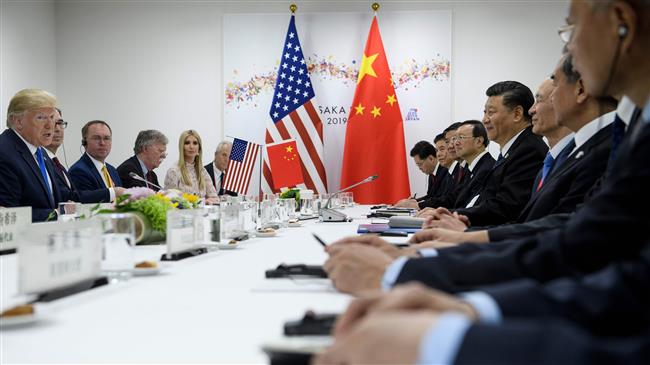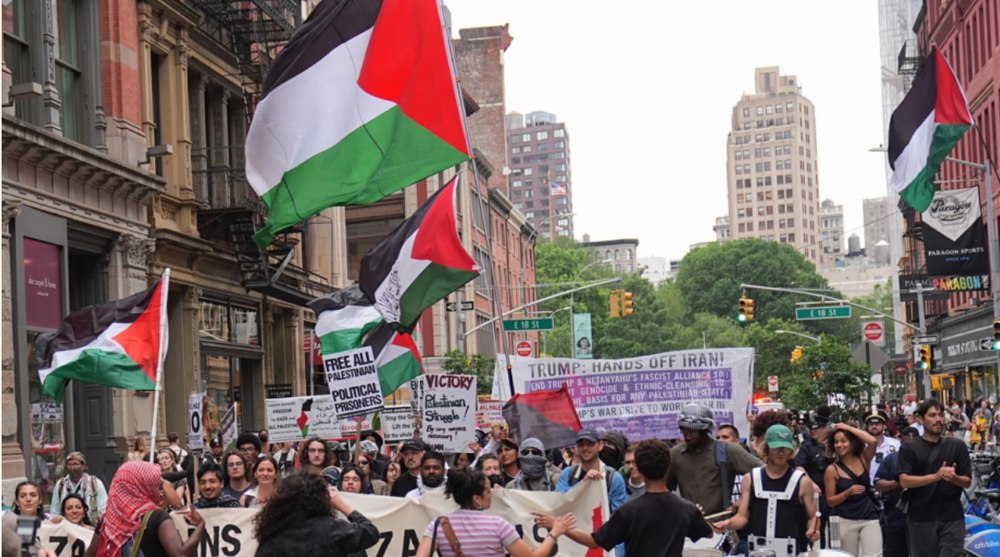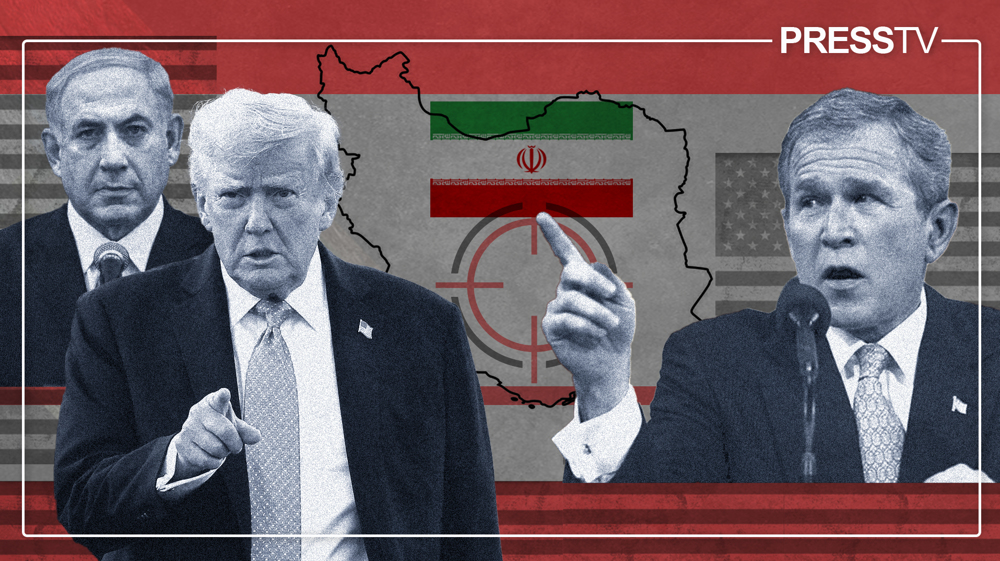US and China agree to restart trade negotiations
US President Donald Trump says Washington and Beijing have agreed to restart trade negotiations and the US will not levy new tariffs on Chinese exports during the talks, though experts doubt the world’s two largest economies will resolve their trade war.
“We’re right back on track and we’ll see what happens,” Trump told reporters after meeting Chinese President Xi Jinping on the sidelines of a summit of leaders of the Group of 20 (G20) major economies in Osaka, Japan.
Trump said existing US tariffs would remain in place against Chinese imports while negotiations continue, but that additional tariffs he's threatened to slap on billions worth of other Chinese goods will not be triggered for the "time being."
He added that his 80-minute meeting with Xi was “excellent, as good as it was going to be.”
China’s foreign ministry confirmed the agreement, saying Washington would not add new tariffs on Chinese exports, and added that negotiators of both countries would discuss specific issues, but gave no details.
In a lengthy statement on the talks, China's foreign ministry said Xi told Trump he hoped the United States could treat Chinese companies fairly, adding that China must safeguard its core interests.
Trump had threatened to expand existing US tariffs to cover almost all imports from China into the United States if the meeting brought no progress.
The US accuses China of stealing US intellectual property for years, forcing American firms to share their technology as a condition for doing business in China, and subsidizing state-owned firms to dominate industries.
China has said the United States is making unreasonable demands and must also make concessions.
Trade talks collapsed in May after Washington accused Beijing of walking back on previous pledges it made in the trade negotiations.
After the talks collapsed, Trump raised tariffs from 10 percent to 25 percent on $200 billion of Chinese goods, and China retaliated with levies on US imports.
The Trump administration has also levied 25 percent tariffs on a separate category of Chinese imports worth $50 billion.
At their meeting, the leaders shook hands in front of flags in a small conference room. Trump adviser Peter Navarro, a China hawk and known as the author of a book “Death by China,” watched Xi intently as he spoke.
The trade dispute includes a feud over Chinese telecoms giant Huawei. The Trump administration has declared the company a security threat, effectively banning US companies from doing business with it.
American officials have also pressed other governments to drop Huawei from plans to develop fifth generation, or 5G, networks. China has demanded the US drop the curbs, saying Huawei presents no security threat.
China has expressed that in order to sign a trade agreement with the US, Washington should remove existing tariffs, make reasonable demands for Chinese purchases of US goods, and end US technology restrictions on Chinese companies like Huawei.
US Trade Representative Robert Lighthizer, another China hawk, said this week there has been little indication over the past weeks that China is willing to cede to American demands they reform their economy.
Many economists, once optimistic for a US-China trade deal, now express skepticism that one will happen soon. Some are even saying the world's two biggest economies are heading into an economic cold war that could last years.
Qatari foreign minister holds talks in Tehran with FM Araghchi, Iran’s top security official
Diplomacy Iran’s priority, but forced negotiations unacceptable: President
VIDEO | IRGC is part of Iran’s national army: Pundit
FM: IRGC upholds peace, stability as foreign meddling fuels escalation
VIDEO | Trump Epstein files scandal
VIDEO | Global order on the brink
VIDEO | 47th anniv of Islamic Rev.
Israeli claims of ceasefire violations meant to 'justify massacres' in Gaza: Hamas











 This makes it easy to access the Press TV website
This makes it easy to access the Press TV website